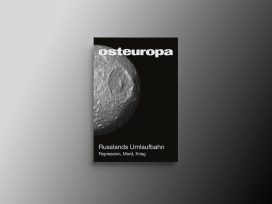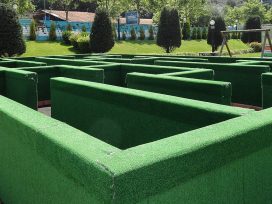Unhitching the wagon
Unlike their nineteenth-century precursors, anti-European intellectuals in Russia today are neither engaged in dialogue with the West, nor do they realize that their ideas about European decline are themselves derivative.
‘A thick cloud lies / O’er the distant West, land of holy miracles.’
Alexei Khomiakov (1835)
There is no denying that the EU–Russia relationship is at its nadir. Early last year, Moscow threatened to sever all ties with the European bloc, while its foreign minister deemed it proper to underscore his country’s resolve by quoting the Latin adage Si vis pacem, para bellum – if you want peace, prepare for war. With the current escalation at the Ukrainian border, that threat now appears to have been more serious than many in Europe would have liked to believe.
Naturally, all eyes are on the political and economic implications of the deepening rift between Moscow and Brussels. Less noticed, however, are the ideational aspects of the Kremlin’s international conduct. Ever since Russia’s Crimea gambit and the eastern Ukraine debacle, a dramatic shift has been taking place in the political imagination of the Moscow elites. At the heart of this shift is a mental distancing from Europe.
No official document better captures the sea-change in the Kremlin’s attitude than the documents prepared in the process of drafting Russia’s new concept of cultural policy in 2014. ‘Russia should be viewed as a unique and distinct civilization that cannot be reduced to either the West (Europe) or the East,’ the authors of the memorandum wrote. They bluntly added: ‘A short formulation of this position is the thesis: Russia is not Europe, confirmed by the entire history of the country and the people.’
‘A new world’
Over the last three to four centuries, Russian perceptions of Europe and the relationship between the two have been in a state of flux. During the Petrine era, Russia’s court geographers and historians were instrumental in remapping Europe’s frontiers. In making the Urals the eastern boundary of Europe, they placed the bulk of the Russian Empire’s western territories firmly within the Old Continent. This exercise in mental mapping served as a symbolic foundation for the Europeanizing policies of both Peter the Great and Catherine the Great, with Catherine declaring in her celebrated Nakaz of 1767 that ‘Russia is a European state’.
Over the course of the next two centuries, there was a good deal of zig-zagging on the issue of Russian ‘Europeanness’. But by the time the Soviet Union had neared its end, the Kremlin appeared to have embraced Catherine’s formula. One of Mikhail Gorbachev’s pet topics was a ‘common European home’; Boris Yeltsin talked of ‘re-joining European civilization’; and, as late as 2005, Vladimir Putin contended that Russia was ‘a major European power’ that for the past three centuries has been evolving and transforming itself ‘hand in hand with other European nations’.
These days, however, the Kremlin proclaims that Russia constitutes a self-sustained civilization distinct from the European one. Moscow’s leading political thinkers argue that the nation needs to liberate itself from Eurocentric outlooks. According to the political scientist Sergei Karaganov, ‘the “decline” of Europe has been talked about for a century. Now the situation appears to have reached a critical stage.’ Writing in Rossiia v globalnoi politike, Russia’s leading foreign policy journal, Karaganov suggested that ‘Europe within the European Union rejects many fundamental European values that have become part of Russia’s identity’. The EU’s ‘new’ values and ideologies – assertive democracy promotion, minorities’ rights, feminism, LGBT, Black Lives Matter, Me Too – are ‘toxic’. As a result, Karaganov concludes, it is time to ‘start questioning [Russia’s] general cultural and spiritual orientation towards Europe, our European roots.’
In February 2021, Novaya Gazeta published a ‘manifesto’ entitled The Rape of Europe 2.0. It expressed a similar attitude, albeit using much more colourful language. The manifesto’s author, the high-profile theatre director Konstantin Bogomolov, characterized contemporary Europe’s ideologues as an ‘aggressive mix of queer activists, fem-fanatics and eco-psychopaths’. Due to their tradition of aping European ways, Russians ‘have ended up at the tail end of a mad train, steaming to a Hieronymus Bosch-style hell where we will be met by multicultural gender-neutral devils.’ Bogomolov’s advice is straightforward: ‘We simply have to unhitch the wagon, cross ourselves and start building a new world.’
While Russia has been living in a Eurocentric world for at least 300 years, Russian pundits assert, Europe has continued to view Russia either as the ‘barbarian at the gate’ or the ‘eternal apprentice’. Now, Fyodor Lukyanov and Alexei Miller contended in a report issued under the aegis of Russia’s Council on Foreign and Defence Policy, ‘Europe will have to recognise that its dialogue with Russia will have to be revised. Not because the apprentice has mastered all skills (or not mastered them at all). This is not the key issue anymore. The simple reason is there is no apprentice, as he no longer wants to be a member of the guild and achieve the guild’s recognition.’
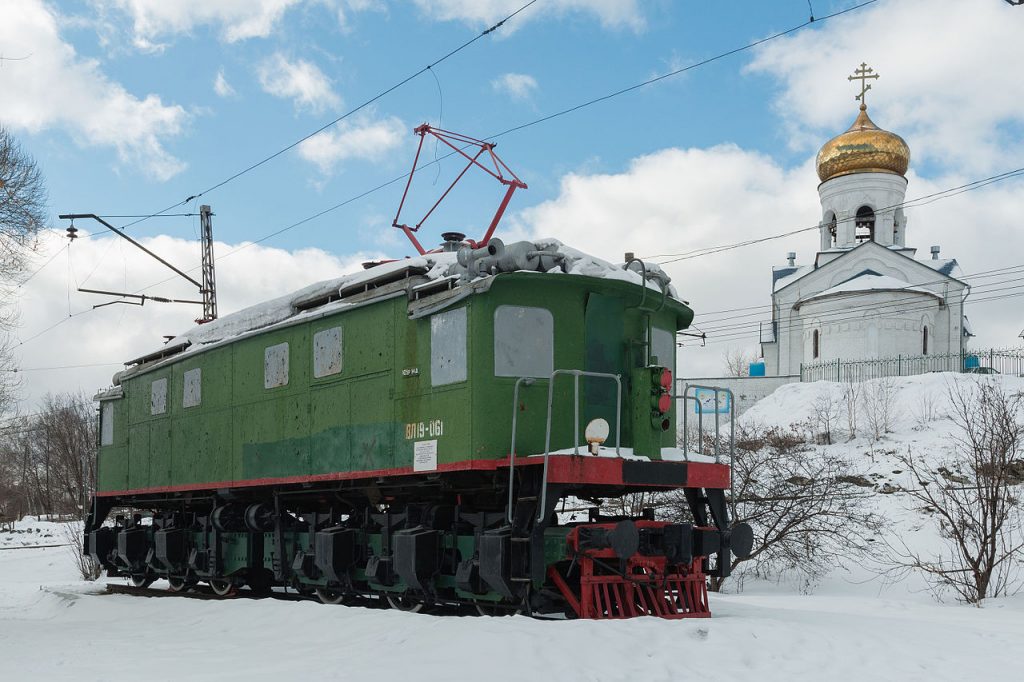
Locomotive monument in Zlatoust, Russia. Author: Роман Дергунов; source: Wikimedia Commons
The dilemma of the intelligentsia
Rather than attempting a comprehensive analysis of how Russia’s historical experience relates to that of ‘Europe’, I would like to offer two theories that are useful in navigating this highly controversial issue. The first is that of the West–East ‘cultural gradient’, introduced and developed by the late Martin Malia. This denies the existence of a sharp dividing line separating ‘East’ from ‘West’ and instead posits a softer gradation as one moves across the united Eurasian continent. The second theory is that of ‘relative synchronicity within a longue durée development’, advanced by Maria Todorova. By analysing various European nationalisms within a unitary structure of modernity, Todorova avoids the discourse of ‘backwardness’ and instead defines the ‘East’ – Eastern Europe, the Balkans and Russia – as part of a common European space.1
While affirming Russia’s basic Europeanness, neither theory denies its peripheral position. Russia’s relative subalternity vis-à-vis Europe appears inevitable simply because it never generated its own vision of modernity but instead adopted a European one. This situation produced a painful dilemma that has tormented Russian intellectuals – a stratum that came to be known as the intelligentsia – throughout the last 200 years. As the American historian Alan Pollard pointed out, ‘the elements which created [Russian intellectuals’] consciousness tended to be products of the West, so that the very qualities which endowed the intelligentsia with understanding, and thus with its very essence, also alienated it from national life, to represent which was its vital function.’2
Awareness of the derivative nature of the modern Russian intellectual tradition and of the country’s cultural dependence on Europe also clashed with the idea of Russian greatness. In the imagination of Russian ruling elites, Russia had throughout most of its history constituted an alternative centre of power, essentially pursuing a global, universal ‘project’ – be it the Orthodox empire of the Romanovs or the Communist empire of the Soviets. The idea of Russia as a pupil made Russia appear to be a junior partner in the Concert of Europe.
From the pan-Slavist vision of Russia as a distinct ‘cultural-historical type’ to classical Eurasianism’s reinvention of Russia as a self-contained world unto itself – it was the struggle with this double dilemma that animated the Russian intelligentsia’s discourses of nation and international identity throughout the nineteenth and twentieth centuries. Underlying these exercises in symbolic geography was an intent shared by generations of national-minded thinkers to challenge the pervasive Eurocentric outlook and assert Russia’s status as an autonomous civilization, fully sovereign and on par with (or even superior to) any other major European power.
It is from this reservoir of metaphors, meanings, images and tropes that Kremlin-connected ideologues currently draw. However, contemporary Russian detractors of Europe completely ignore the fact that, while providing copious evidence of the imminent Untergang des Abendlandes, their nineteenth-century Russian precursors were involved in a vigorous intra-European debate. Indeed, their intellectual constructs were to a large extent products of the European mind. In his 1966 work The Icon and the Axe, James Billington pointed to an ‘important phenomenon’ that played a formative role in Russian intellectual history: ‘the Western prophet who looks to Russia for the realization of ideas not given a proper hearing in the West.’3
Throughout the nineteenth century, European mystics, Romantic thinkers, utopians, reactionaries, and conservative Christians such as François-René de Chateaubriand in France, Joseph-Marie de Maistre in Piedmont-Sardinia, Juan Donoso Cortés in Spain and Karl Wilhelm Friedrich Schlegel in Germany had been these ‘western prophets’. In the process of conducting intense intellectual dialog with their Russian spiritual brethren, they had fed them apocalyptic images of Europe’s decline.
The dynamic was noticed and commented on as early as the 1850s. ‘Where did we get … the idea, or, better, not the idea but the melodramatic phrase that the West is a decrepit old man who has already taken from life all he can take, who is running out of life, and so forth?’ asked Russian literary critic Nikolai Chernyshevskii – and promptly answered his own question: ‘From those vapid and thick-witted western books and articles, that’s where.’4
Remarkably, this time-honoured intellectual exchange between Europe’s ‘West’ and ‘East’ persists. Contemporary Russian ‘conservatives’ are wont to pontificate on ‘tyranny of the minorities’ in Europe, ‘western ideocracy’ or, most recently, the EU’s ‘new ethical Reich’. However, their disquisitions are often only pale imitations of the works of western paleoconservatives and Nouvelle Droite intellectuals such as Paul Gottfried, Alain de Benoist and Guillaume Faye.
Grim men in the Kremlin
Yet there is a stark contrast between emotional impulses that drove the writings of nineteenth-century Russian intellectuals and those behind the philippics of their twenty-first century epigones. Most of the former genuinely loved Europe and suffered as they observed its supposed ‘fall’. The latter appear to be largely motivated by their ressentiment and animus towards the ‘West’ – emotions born of the unhealthy combination of arrogance and inferiority complex.
Alexei Khomiakov, the intellectual leader of the Slavophiles, and later Fyodor Dostoevsky were both deeply upset by what they saw across Russia’s western border. Following the late eighteenth and nineteenth-century revolutionary upheavals, Europe had gone awry, they observed with a sigh of grief, and Russia was destined to heal its wounds by the power of her spirit. ‘We Russians have two homelands: our own Russia and Europe, even if we call ourselves Slavophiles,’ Dostoevsky noted in his Writer’s Diary for 1876. ‘Europe – but it’s a terrible and sacred thing, Europe!’ he wrote in his diary next year. ‘Oh, gentlemen, do you know how dear Europe is to us … Europe, this ‘land of holy miracles’! Do you know how dear these ‘miracles’ are to us and how we love and revere, with more than brotherly love and reverence, those great tribes that populate it, together with all the grand and beautiful things they have accomplished? Do you know how many tears we shed and the pangs of heart we suffer at the fate of this dear and native country, and how frightened we are by the storm clouds that are ever gathering on her horizon?’5
This kind of emotional attachment is entirely absent in the writings of Kremlin-friendly intellectuals. For Dmitry Trenin, director of Carnegie Moscow Center, Europe has ceased to be a ‘sacred’, ‘native’ or even friendly land. For contemporary Russia, it is now ‘just another neighbour, part of a Greater Eurasia stretching from Ireland to Japan’. The strategic goal of close cooperation and political alliance with Europe – an idea that agitated the minds of Russian liberal intellectuals and policymakers in the 1990s – is now deemed impractical, if not harmful. Russia’s progress is no longer associated with its European ties.
Timofei Bordachev, a high-profile Moscow political commentator, has argued that ‘moving forward is impossible without repudiation of a significant part of [our] own heritage, including, perhaps, its central core: the European character of Russian statehood.’6 Europe as a source of innovation has been written off as a spent force. ‘We have already received from Europe everything we needed,’ Karaganov and other like-minded political analysts note in a business-like manner. ‘Everything else,’ they argue, ‘we either already have or it’s simply out of reach because we cannot master it: historically, Russia is an authoritarian state… It’s time to stop being ashamed of the fact that we are historically committed to an authoritarian system of government, not to liberal democracy.’7
That’s the crux of the matter. What bothers the grim men in the Kremlin is not ‘Gayropa’ – a bogeyman manufactured for domestic consumption – but the EU’s fundamental political ideals and values: human dignity and freedom, rule of law, democracy, and tolerance. It is these aspects of European heritage that the Kremlin rulers, presiding over the increasingly repressive authoritarian regime, cannot master.
The thing is, though, that these ‘European values’ are universal. Younger generations who take to the streets across Russia’s vast expanse to challenge the country’s governing elites understand this. The Kremlin rulers appear to understand this too. However, ever ready to resort to obfuscation, they now cast all European heritage as ‘toxic.’ From their perspective, the best way for Russia to proceed is indeed to unhitch its ‘wagon’ from the European ‘mad train.’ This of course is nothing more than reactionary utopia.
Martin Malia, Russia under Western Eyes: From the Bronze Horseman to the Lenin Mausoleum (Cambridge, MA: Belknap Press, 1999); Maria Todorova, ‘The Trap of Backwardness: Modernity, Temporality, and the Study of East European Nationalism’, Slavic Review 64, no. 1 (2005): 140–164.
Alan Pollard, ‘The Russian Intelligentsia: The Mind of Russia’, California Slavic Studies 3 (1964), 15.
James H. Billington, The Icon and the Axe: An Interpretive History of Russian Culture (New York: Alfred A. Knopf, 1966), 173.
Nikolai G. Chernyshevskii, Polnoe sobranie sochinenii, 15 vols. (Moscow, 1947) 3:83.
Fyodor M. Dostoevsky, A Writer’s Diary. Vol. 1: 1873–1876 (Evanston, IL: Northwestern University Press, 1994), 505; Vol. 2: 1877–1881, 1066.
Timofei Bordachev, “Legko li Rossii rasstatsia s Evropoi,” VTimes, 16 February 2021, http://svop.ru/main/36316/#more-36316
Sergei Karaganov, “Avtoritarism v Rossii ne naviazan sverkhu,” Peterburgskii dialog, 4 October 2018, https://www.kommersant.ru/doc/3752289
Published 12 January 2022
Original in English
First published by Krytyka 7–8/2021 (Ukrainian version); Eurozine (English version)
Contributed by Krytyka © Igor Torbakov / Krytyka / Eurozine
PDF/PRINTPublished in
In collaboration with
In focal points
Newsletter
Subscribe to know what’s worth thinking about.
Related Articles
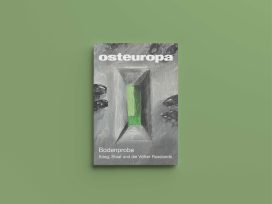
Internal empire
Osteuropa 1–3/2024
Why the Russian Federation is a de facto empire despite the 1993 constitution; why Putin’s imperial but anti-ideological variety of Russian nationalism dominates; why Chechnya remains an open wound on the body politic; and feeling the impact of the Putin regime’s clampdown on intellectual freedoms.
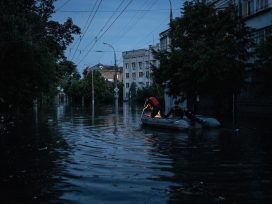
‘Occupation is like a flood. The water doesn’t reach every house at the same time. First it covers the roads until it meets an obstacle – a wall or a fence. Then it starts to rise, finding cracks, seeping further, conquering one house after another, together with everything inside them.’





